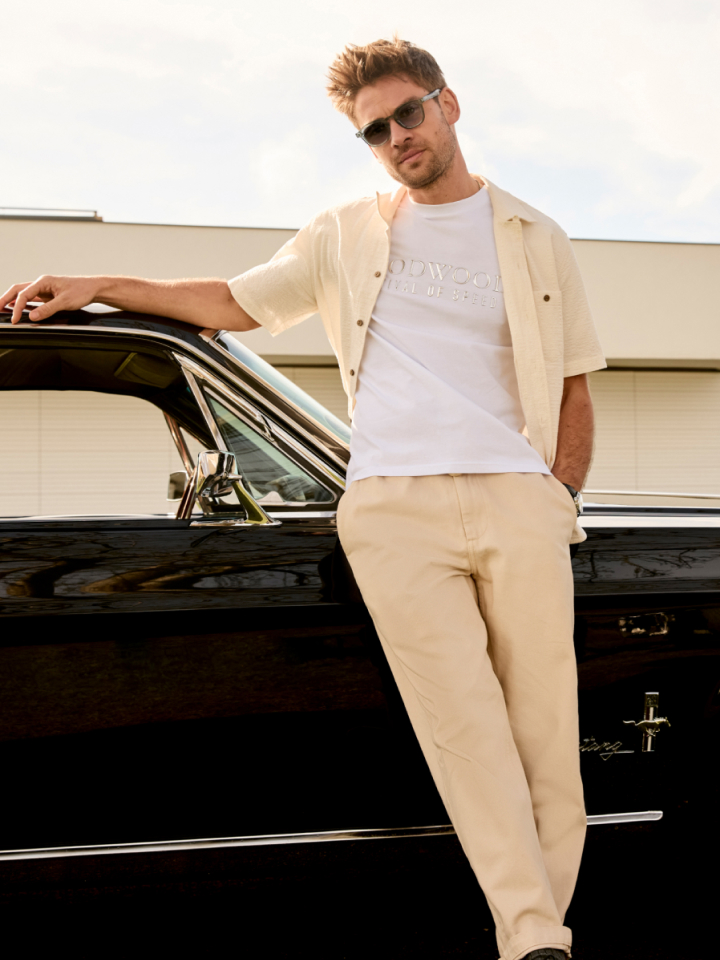Waving goodbye to the Ford saloon | Axon’s Automotive Anorak
When Ford recently announced that it will phase out its existing third-generation Mondeo in 2022 and not replace it directly with another family saloon (named Mondeo, or otherwise, but rather an SUV/crossover), an unexpected wave of nostalgia and melancholy quickly spread across the British press and public alike to mourn this popular saloon/hatchback/estate model.

After almost 60 years of dominating the British family saloon market with its (mostly) adequate but unexceptional best-selling mid-sized fleet-friendly models – beginning with the now iconic Cortina in 1962, followed after four/five generations by the controversial Sierra of 1982 and the subsequent, more-resolved Mondeo from 1993 onwards – the Blue Oval’s traditional three-box family car is finally set to be to laid to rest, probably never to be resurrected.
The planned 2022 Mondeo successor will practically bring Ford full circle after a century or more, taking the same upright ‘sit up and beg’ raised boxy stance of Henry Ford’s best-selling Model T of 1908, and applying this inexplicably popular formula to a modern crossover/SUV, executed in the current Ford Kuga style.
The extinction of the mid-sized family Ford saloon after 60 years, plus the made-up Mondeo name after a 29-year production run and five million model sales, will also mark an end to a particular type of British motorist, as commonly popularised by the UK media as ‘Mondeo Man’ as a result of the over-hyped Tony Blair/’New Labour’ mid-1990s election era. Production will stop at Ford’s Spanish Valencia plant in early 2022.

Changing times and tastes more recently have seen new car buyer demand dramatically shift away from ‘traditional’ three-box saloons and more towards SUVs, crossover and lower-emission cars, with Ford now planning all its new cars sold in the UK and mainland Europe to be fully electric by 2030, with every model having a hybrid or electric derivative option by 2026.
Last year almost 40 per cent of all Ford's new passenger car sales in Europe were SUVs or crossover models, compared with 31 per cent just a year earlier. Whilst the Mondeo remained popular, it has achieved dwindling sales each year, now easily outsold by the Ford’s high-raise models such as the Kuga, as well as once more prestigious and exclusive (mostly German) ‘premium’ brand upper-medium saloons, as typified by the popular BMW 3 Series, Mercedes-Benz C-Class and Audi A4.
The Ford Mondeo has long been a safe and loyal member of the family, just as its Cortina and Sierra forefathers had been too. The Mondeo was comfortable, reliable, unpretentious and economical, not being too flashy, but still ‘enough’ of a car to sit proudly on suburban driveways as a symbol of an honest, hard-working individuals, such as thousands of travelling sales reps the length and breadth of the British Isles.

Quite why so many motorists now seem to want unwieldly SUVs or crossovers over the more traditional lower centre of gravity, dynamically superior saloons and hatches is something of a conundrum to me.
Sure, SUVs tend to be more versatile and ‘family friendly’ than regular three-box cars, with their raised seating positions and perceived ‘added safety’ being favoured by many too. Ford however, along with virtually every other car maker, also favours SUVs as they are much more profitable to make and sell (for a premium price) over a traditional saloon, hence the Blue Oval trading on the nostalgia and emotions of previous revered model names (Mustang, Puma, etc.) for its latest SUV and crossover models.
To a driving enthusiast and (probably too) traditionalist car fan like me though, the downsides of SUVs far outweigh the advantages they potentially offer. Dynamically most SUV models are not rewarding to drive, they all look increasingly the same, tend to be way too big and cumbersome, don’t get used for the original reasons they exist (i.e. off-road, up to their axles in gloppy mud and snow) and generally are not as safe and ‘friendly’ to pedestrians and fellow road users as regular lower-slung family cars, despite their high-raise drivers feeling that they are increasingly invincible.
At present the ten most polluting ‘mainstream’ cars currently on sale in the UK are SUVs, with the majority littering our busy city and urban (tarmac) roads, rather than green country lanes and fields, struggling to fit their huge, heavy inefficient frames into packed roads and smaller parking spaces originally designed for an average Cortina/Mondeo-sized family car, not a giant off-roader. As an aside, if SUVs were a separate stand-alone country, they would be placed seventh in the world for generating the highest global emission levels! Not a proud boast.

Even the growing band of so-called environmentally-friendly hybrid and all-electric SUVs are not as efficient and nimble as their regular BEV car rivals, lugging around the additional weight of batteries to their already lardy frames. After all, do most suburban drivers really need a two ton truck capable of ploughing over fields, crossing rivers and climbing up steep hills just to pop the kids to school or visit the local coffee shop, be it in a new Ford SUV or otherwise? I think not.
Although I have never personally owned an upper-medium Ford family saloon, I have driven (and enjoyed) many, and grew up with at least two Cortinas in the family as a child, as my old photo albums remind me. The Cortinas, Sierras and Mondeos of the past (plus numerous Taunus models for any Continental readers tuned in) may not have been outstanding cutting-edge game changers within their vehicle sectors, but these older Fords offered many hours and miles of safe, dependable and honest motoring for countless families across the UK and further afield.
So, adieu Mondeo, you will be sadly missed as the last of a once mainstream motoring breed that you stepped down into, rather than needing a small step ladder to climb up into.
Ford
Mondeo
Cortina
Puma
Mustang Mach-E
Axon's Automotive Anorak































































